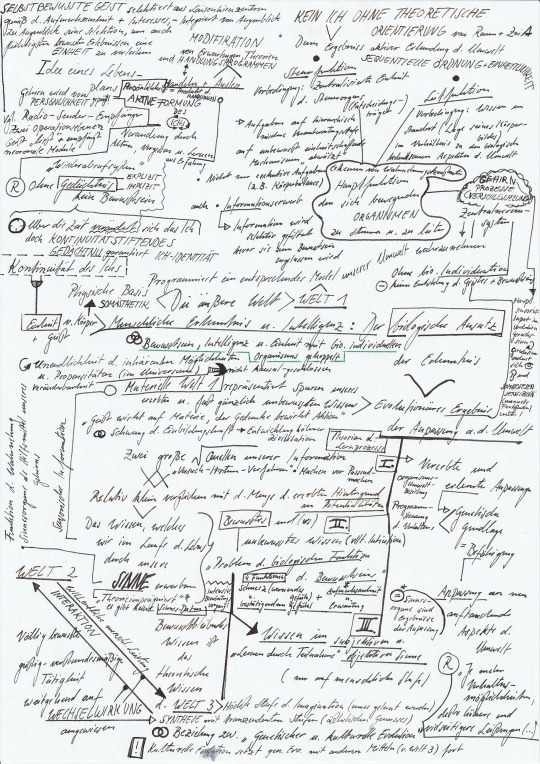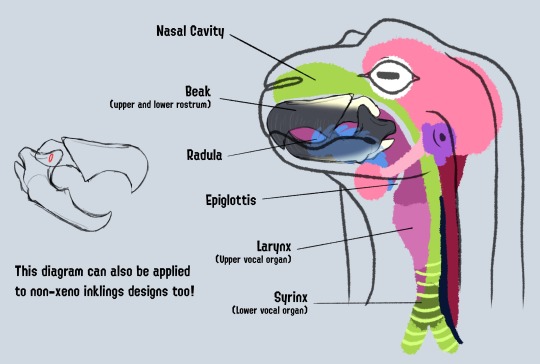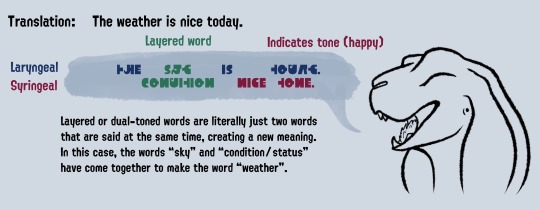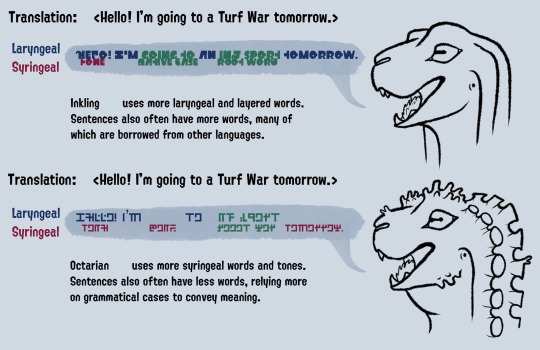#scientific theories
Text
Theories of the Philosophy of Chemistry
The philosophy of chemistry encompasses various theories and perspectives that seek to understand the nature of chemistry as a scientific discipline and its relationship to other areas of inquiry. Here are some prominent theories within the philosophy of chemistry:
Reductionism: Reductionism in the philosophy of chemistry posits that chemical phenomena can ultimately be explained by reducing them to the behavior of atoms and molecules at the micro-level. This approach seeks to understand complex chemical processes in terms of the interactions and properties of individual particles.
Emergence: In contrast to reductionism, emergentism suggests that chemical properties and behaviors emerge at higher levels of organization and cannot be fully explained by reduction to fundamental particles alone. Emergentist theories emphasize the novel properties that arise from the interactions of chemical substances and complex systems.
Structural Realism: Structural realism is a philosophical stance that emphasizes the importance of the structure of theories in understanding the nature of reality. In the context of chemistry, structural realists argue that chemical theories capture the underlying structural relationships among chemical substances and properties, even if the theoretical entities themselves may not directly correspond to observable entities.
Operationalism: Operationalism is a philosophical approach that defines scientific concepts in terms of the procedures or operations used to measure or manipulate them. In chemistry, operationalism emphasizes the importance of experimental techniques and procedures in defining chemical concepts and theories.
Ontological Pluralism: Ontological pluralism acknowledges the existence of multiple ontological levels or domains of reality, each characterized by its own set of entities and properties. In the philosophy of chemistry, ontological pluralists may argue for the coexistence of different ontological frameworks, such as molecular, macroscopic, and emergent levels of description.
Instrumentalism: Instrumentalism is a philosophical view that regards scientific theories as tools or instruments for predicting and explaining observable phenomena, rather than providing literal descriptions of reality. In chemistry, instrumentalists may view chemical theories as pragmatic frameworks for organizing and interpreting experimental data, without necessarily committing to the ontological status of theoretical entities.
Process Philosophy: Process philosophy emphasizes the dynamic and relational nature of reality, viewing entities and phenomena as processes or events unfolding over time. In the philosophy of chemistry, process philosophers may emphasize the importance of chemical reactions and transformations as central to understanding the nature of chemical substances and properties.
Holism: Holism is a philosophical perspective that emphasizes the importance of understanding systems as wholes, whose properties cannot be fully explained by analyzing their individual parts in isolation. In chemistry, holists may argue for the importance of considering the systemic and contextual factors that influence chemical phenomena, rather than focusing solely on the behavior of individual molecules or particles.
These are just a few of the many theories and perspectives within the philosophy of chemistry, each offering unique insights into the nature of chemical science and its relationship to broader philosophical questions.
#philosophy#epistemology#knowledge#learning#chatgpt#ontology#education#metaphysics#Reductionism#Emergence#Structural realism#Operationalism#Ontological pluralism#Instrumentalism#Process philosophy#Holism#Philosophy of science#Scientific theories#Chemical ontology#science
3 notes
·
View notes
Text
I have a theory
I need a larger sample size of gays and control group straights to test this
So the theory is simply out as follows:
Straights lead with the chests when they walk, while gays lead with their hips, hence why the gays walk faster
I’m serious
I’ve noticed a lot of people, straights, who always tell you to push your shoulders back, chin up, and lead with your chest, but a lot of gays I’ve met do exactly the opposite
They walk with their shoulders slumped, and by extension, end leading with their hips
I think this is why they walk faster
I’m asking for you to try this at home
To test the theory: find a decent space, large enough to walk multiple paces, then establish your normal walking pattern, then try to two types of walks, the chest forward and hips forward variants, then comment or tag how you identify, you’re normal walking pattern, and finally which walking pattern you found to be faster
Please let me know, I need a larger sample size to test
I’m affectionately dubbing this The Crowley Pace theory
I would also of course be very interested in why this is true if we find it to be, so anyone who might have sound psychological reasoning to explain this, why one group of people walk differently than enough when there are no clear indicators as to why
#it could also be cool to test if this applies to all queer people and straight people in equal measure#or if individual identities change results#like if lesbians have a different answer than gays#anyway#gay shit#queer#tagging#theories#scientific theories#testing a theory#good omens reference#I snuck it in#did you notice
0 notes
Text
Actually? You know what would be darkly hilarious?
If, when the GIW can't get ghosts declared both malicious AND non-sapient/sentient? They push for "dumb animals" instead.
Which is accepted. Ghosts are animals. Checks out, says scientists everywhere.
HOW "dumb"?
What? Says the GIW, mid-victory high fives. They did not expect a follow up question. They SHOULD have, as this is the SCIENTIFIC community and that is literally their job, but here we are.
How. "Dumb"? The scientists repeate slower. What methodology did you use? What is your sample size? Are their different sub-species? Is this dimension like ours? Is Ghost the equivalent to Mammal? It says here their are humanoid ones.
What IQ are we talking about here and HOW DID YOU TEST??
A goldfish, parrot, and dolphin are all animals. WILDLY different levels of intelligence. You can't treat them the same. Technically speaking, WE are animals.
The GIW does not like where this conversation is going. Tries to shut it down.
.......well NOW the scientists are both offended AND invested. How DARE you try to push faulty science and hide the Truth from them! They're gonna do their OWN studies! *picks up the phone and dials that one embarrassing spiritualist friend they had in college* Hey! You still think you can summon ghosts? I'll pay you to try it for Science!
And like? As a Ghost? It's degrading as hell. But ALSO these fuckos just Whoopsie'd you into having both protections under the law, since animal abuse IS illegal, AND just put the ENTIRE planets scientific community on their asses.... by accident.
So you take a deeeeeeep breath you don't even need. Remember you're doing this for the little ghost babies and fluffy ghost animals. And show up at a research facility like "yes, hello, I am Ghost. Here for you to poke and prod at. Please ask me to name the object on the flash card or whatever IQ tests do these days."
Should you HAVE to prove your own fucking sentience? No. But? You do it. You're even polite about it. Ask for a copy of the study they plan to publish so you can BEAT some mother fuckers with it. The scientists nod in understanding and use the BIG font for your copy so it'll hurt more.
They've been there.
And just? Shitty people getting what they wanted only to have it blow up in their faces?? I see all these angst "but what if they were declared ANIMALS" prompts and I just?? Are we talking PARROT or goldfish!? One has the average intelligence of about a human 4yr old and the other is a FISH! People get RIGHTFULLY furious when you treat INTELLIGENT animals badly.
And would, in fact, adapt pretty easy to discovering one of said animal has become HUMAN lvl intelligent. It's easy to grasp the idea of human intelligence lvl dolphin or monkeys. Maybe there was some mutated strain, maybe in uetro tampering. Who knows. But if I tried to sell you a human intelligent housefly? Gold fish? Lizard?
You wouldn't believe me. There is some kind of trick at play.
So if GHOSTS are seen as animals? Everyone nods and then later? Someone comes in TV and very excitedly informs you "we found INTELLIGENT LIFE amongst the ghosts!" You'd believe it. Probably be really excited by your conversation starter for the day. Get a taco and move on with your life.
But? Having to willing sit for a barrage of testing? Is going to suuuuuuck so bad. Poor Danny. SATs all over again. For HOURS. At multiple facilities, just to be CERTAIN it's not a one off. All because he not certain he can insure good behavior from other ghosts and This Is IMPORTANT. He ALSO can't be certain it's even SAFE.
Might be a trap.
But if he has to do it again and again and again? Mexico to Bavaria to China to the Maldives? If this is what it takes for the scientific community to bitchslap the GIW into ORBIT before the UN? Hand him that pencil.
He has no where more important to be.
@hdgnj @nerdpoe @mutable-manifestation @ailithnight @the-witchhunter
#dpxdc#dp x dc#dc x dp#dcxdp#dc x dp prompt#you wanna call me an animal?#well check mate!#SO ARE YOU#now they're asking what KIND of animal i am!#and THIS ghost is sayin SAPIEN!#i am in your scientific community#disproving your theories!#your studies were bad and you should feel bad!#danny phantom
5K notes
·
View notes
Text
Learning to become an I

"The Self and Its Brain - An Argument for Interactionism" by philosopher Karl R. Popper and brain-physiologist John C. Eccles, originally published in 1977, this edition was published in 1982.





It was an exciting journey to read this illuminating work, which deals with the problem of relation with body and mind and the connection between the structures and processes in the brain and the mental, conscious actions and operations. The liasion of Eccles and Popper is an interdisciplinary research, connecting areas of expertise to underdraw the Theory of Psychophysical Interaction, which means body and mind are interrelationaly collaborated, but the organism is in a constant shaping through the physical world.


Examining different kind of classical epistimologies, to underdraw their Theory of Interactionism, it was traceable why the system of materialism
(critisizing the causally completed physical world and the continuity of matter [World 1] according to Popper and Eccles, the material world is influencable as the living organisms have the ability to change the environment (= adoption of new biological and ecological meanings = influencing the pressure of selection = infinity of inherent possibilities and propensity),
the system of determinism
(often considered under a natural approach, theory of the world as a deliberately construct of God or Goddesses, famous thinkers of this systems are Leucippus and Democritus, formers of the atomism and mechanic materialism - Popper is sharply critisising the methods of science as they are the dominant conception of science till today, using the image of clouds-and-clocks to present the illusion of mechanistic theories [heavy systems evoke the impression that they are working like clocks, but in reality those huge organic molecules are open systems and the deduced physical law can just be observable, because enormous molecular mechanics are influencing each other + the principle of how science is classified is a misunderstanding, monistic systems are denying the dualistic and pluralistic understanding of things and entities !!! As an alternative solution the theory of possibilietes and probalistic preformationism are proclaimed]),
the system of panpsychism
(the theory of matter, defining that all things and entities have an inner sight, which is of mental and conscious quality, is denying the interaction of genetic and cultural evolution in accordance to the emergence feature of the self-consciousness- All living organisms are active "systems of perception" and not only passive sensually recipients - developments are active processes, the essential nature of the self is continuesly changing and depends on the physical type, the intellectual initiative and ingeniuty)
and the system of empirism
(where to begin? As mentioned before, we are the products of adaption, what we percieve with our senses is encrypted and every interpretation is the work of many polyvalent operations [as the parts of our brain are highly connected and it is still not possible to verify how recognizing-process is established in total, because eventhough the brain is more or less divided in areas of function, our genes, environment and thought patterns are permanently forming our realisation, therefore are senses are also products of constant adjustment] also it takes more for the self as the empirical memory, we are not only the total sum of our experiences, there are mechanism that guarantee the continuety of our self [Theory of Gene-Identity by Kurt Lewin and Locke's Principle of Individuation] and we have more methods to percieve knowledge rather than only using the senses, according to Hume, who is denying the existence of autonomic consciousness the cosmology is simplified and the ethics, the freedom of human-beings to chose their actions in accordance to humanistic aspiration, undermined)
are untenable, because the mind and the self-conscious are coupled with the biologic individual organism and the nature of the self can most likely be captured with the Theory of Navigator and the essential requirement of space-and-time (as we need the orientation to establish our self, cf. Alzheimer-dementia and the fundamentaly difficutly of spatial orientation and loss of memory = Not able to reproduce the Idea of the Self = Unability to prepare for the future = independent life becomes hardly possible).

The senses are considered as tools for our brain to contrive functions of perception. The brain is programed to seize the most fitting model of our environment and the model is subject to steady review and interpretation (after Ernst Gombrich "making comes before matching" Theory of Visual Perception) of the conscience (Inner Enlighment in accordance to Feigl, compatible with this term is an assessment of Einstein:
"Without this inner enlighment, the whole universe would just be a pile of rubble."
The interdepence of thinking, intellect, reason, subjective experiences (....) are shoring up the circles of repetition of the brain (by means of synaptic plasticity), generating dynamic engram and the growing of neoronal synapses (= Theory of Learning = Ability for Remembrance).
The Theory of Interactionism is emphasising the intensive brain acitivity, which is the necessary condition for physical and mental processes, that means both processes are influencing and causing.

What is this Self exactly? Where can our I be located? In which context does cosmic-evolutionary stages bring the consciousness forth?
What seems trivial for the indolent, is a deep ocean of mysteries and wonders for the continous learner. Experiencing the self - is learning to become the self, as we all have the Idea of a Life-Plan (Rawl "Theorie der Gerechtigkeit"). We percieving the world and take action under the leadership of theory impregnated patterns. The personal task for the differentaited grades of conscience is to expand over our sure-thought-being and achieve goals that stand above instinctive longings and inclinations.
Maybe the human-being is not the centre of the creation nor is the state of mind the product of the central nervous system (Central State Theory).
The universe is an open and creative system, just as the stars govern our conditions, we as dust particles have also the potentiality to influence in downward causations (never underestimate macroscopic structures).

It made a lot of fun to read this spectacular work and it animated me to draw more attention in actions and thinking-patterns, as taking the opportunity to crystallize sparkling diamonds to make my percieved world not only more worthy to live in, but to motivate other souls in lightening up the beauty of live, which we all carry in us,
sometimes it is just hidding, because we used to negate the Good in conditions of uncertainity.
If we are forced to live this earthly live, we should live it with love and inner peace, if everyone would train to become more and more self-sufficient, I believe, that there would be piece and harmony, because reason means a positive affirmation of life, the creation of a self, that is happy to improve itself, to evolve and take part for a better world,
the product of domesticated and therefore enhanced awareness.
#literature#book cover#bookworm#book#epistemology#philosophy#theories of conscience#the self and I#The Self and Its Brain#brain power#Interactionism#philosophical theories#Karl Popper#John Eccles#interdisciplinary research#scientific theories#creation of reason#thinking structures#the impact of evolution on establishing the consciousness as a necessity#genes#chemical impact#neurophysiological influence#the sense behind remembrance#science#physiology of brain
1 note
·
View note
Text
Theory time~! (CoNspiRacieS)
Now, who doesn't love theories? Be it about two classmates dating or a cat being dead and alive before you open a box. From what I've seen in movies and dramas, the most popular stories in ye olde times were gossip theories about royalty and the rich. Scientific theories can also be interpreted as classy conspiracies about the universe. [String theory being the biggest fanfic I know of.]
Now, now, you may say you hate gossip, and you may not participate in gossip, but can you stop yourself from eavesdropping listening?
I'm pretty sure gossip theories make ppl be like-

for the tea~~.
Jokes aside, theories can provide a world to escape into or a belief to hold onto. Depending on the degree of imagination used, theories can produce different results. Fiction stories are purely imaginative, gossip is medium-ly imaginative with reality playing a huge part, planning is the least imaginative, and scientific theories can fit into any of the three categories.
Now, what are the theories you like/recommend/are involved in?
#theory#fan theory#scientific theories#imagination#fiction#storytelling#gossip#conspiracy#I hope the recommendations will help me look into all sorts of fandoms#science theories are more than welcome
1 note
·
View note
Text
His Dark Materials is a franchise that tackles so many branches of physics and even creates a universe where the main course of study is experimental theology which is all about identifying and explaining dark matter while also adding dimensions to string theory, the multiverse theory, and the very concept of the human soul. At the same time, it aggressively calls out the problem with the state being controlled by the church, how people are condemned for being different and religious fearmongering stops the chance at growth both on an individual and a societal scale. It’s a franchise where the heroes of the story are two children who aren’t allowed to know the prophecy they’re a part of, who save the world unwittingly simply by doing what they believe to be right. Meanwhile, the person who thought he was the hero all along, the person who rallied an army from multiple universes to FIGHT. GOD. HIMSELF. is ultimately consumed by his own ego and forced to take a back seat when he realises he’s just one tiny piece of a much larger story that’s true heart is his own daugher. The child he abandoned, the child he didn’t know or care to know how to look after. It’s a franchise about finding love even when your biological family abandon you, it’s about looking evil in the eye and seeing your own mother, it’s about good and evil not being black and white but instead a complex and cruel mixture of both. It’s about the two worst people you know banding together at the last second to save their daughter with their final breaths. It’s about exploration and learning how to grow through experience, it’s about kindness being shared across the multiverse, exchanging stories with strangers and saving the whole world by doing something perfectly ordinary and receiving no reward.
Oh, and it’s also a franchise rich with fantasy, with giant talking polar bears, witches and ghosts, angels and daemons, and a mammal-like species from another world that travels exclusively on roller skates.
And it fucking. rocks.
#his dark materials#phillip pullman#hdm#lyra belacqua#will parry#marisa coulter#lord asriel#mary malone#northern lights#the subtle knife#the amber spyglass#i feel like i didn't even scrape the surface. the universe created here has fascinated me since i was a kid#but as i've gotten older i've really learned to appreciate all the scientific theories that are expanded upon using fantasy and philosophy#as someone who has a weird obsession with theoretical physics hdm scratches a very specific itch 😂#anyway that's my little rant over. i'm done now.
8K notes
·
View notes
Text

"Evolution is a fact, not a theory. It really happened, and the fossil record and the molecular biology all confirm it. And yet, in this country, the United States, which is the leading scientific country in the world, we have people who are not only ignorant of science, but who are actively hostile to it and to the scientific method. And that is a serious problem, because science is not just a body of knowledge, it's a way of thinking. It's a way o skeptically interrogating the universe with a fine undersanding of human fallibility."
-- Carl Sagan
#Carl Sagan#evolution#theory of evolution#evolution is a fact#science#human fallibility#scientific method#what science is#fossil record#molecular biology#evolution deniers#evolution denial#religion is a mental illness
505 notes
·
View notes
Text
HI HELLO! Welcome to my completely unnecessarily detailed analysis on how I think Inkfish languages could work! + with art! yay! This is all pretty rough and not fully fleshed out (I don't have the time or patience for that lmao). THIS IS A LONG POST.
Okay, so there's dozens of languages spoken by cephalopods in the Mollusc Era but the main two I'll talk about are Inkling (or Inklish) and Octarian, spoken mostly by Inklings and Octolings respectively.

In cephalopods, speech is formed using the syrinx and larynx, two fancy vocal organs that most other species don't have together. The larynx makes sounds using the radula (tongue) and vocal folds in the throat, it's clear and pretty easy to understand as the sound itself resembles human speech, albeit warbled. The syrinx makes noise by vibrating air at the base of the trachea, it's often trickier to follow as it can sound more like droning background noise than words sometimes.
An inkfish can use both of them at once, resulting in an EXTREMELY complicated language system where words can be made up of multiple layered syllables, and several words and sentences can even be said at the same time.
As you can probably imagine, all of this is LITERAL HELL to learn for species who don’t have both a syrinx and a larynx (so basically anyone who isn't a cephalopod). But fear not! There are many simple and more inclusive alternatives, dialects and other cool stuff like sign language and instant TTS technology for people who physically can't pronounce Inkling/Octarian or even vocalise at all (eg. jellyfish).

Both main Inkfish languages can be broken down into laryngeal words (made with the larynx), syringeal/drone words (made with the syrinx) or a combination of both, called dual-toned/layered words.
Keep in mind that both word-types can be spoken at the same time. Layering can be used to add additional connotations to a word, or to even make a new one entirely. For example, the laryngeal noun ‘bird’ combined with the syringeal noun ‘metal’ spoken together will create the layered Inkling word ‘aeroplane’, like a compound word in English.

Dual-toned stuff is more common in Inkling than in Octarian, as the language is older and has more loanwords. Inklish's dependence on the larynx gives it a higher-pitched, clearer sound whereas Octarian's more monotone syrinx-based structure results in a deep, almost guttural sound.
Both cephalopod languages are heavy on tone and pronunciation, resulting in a plenty of accent indicators in written scripts. I used the in-game fonts for the art but if I were to rework it, each letter would probably be more complicated than traditional Mandarin on steroids. So hell on earth, basically.
On a side note, all of these language features open possibilities for some very cool poetry and literature. An inkfish author could write a poem with two lines of thought occurring at once, or a book with vivid emotional undertones written inside the prose. Pretty cool.
OKAY that's all I have to say thank you for reading! Hopefully this makes sense, feel free to send asks or whatever if it's confusing and I'll do my best to explain it better!
#I should go outside instead of analysing the silly squid game#I tried my best with my scientific and (limited) linguistic knowledge don't yell at me if I get something wrong lmao#my art#splatoon#xeno tag#xeno inkling#xeno octoling#splatoon 3#splatoon art#speculative biology#speculative zoology#conlang#splatoon headcanon#inkling#octoling#splatoon theory
570 notes
·
View notes
Note
Hi, i just learned about the scientific revolution in europe at school. Can you tell me why you dont think scientific revolutions exist? im curious!
So I feel like I have to lead with the fact that I'm kind of arguing two different points when I say scientific revolutions aren't really a thing
One is that I'm objecting to a specific, extremely foundational theory of scientific revolutions that was put forth by the philosopher Thomas Kuhn, which I think really misrepresents how science is actually practiced in the name of fitting things to a nice model. The other is that I think the fundamental problem with the idea is that it's too vague to effectively describe an actual process that happens.
It's certainly true that there are important advances in science that get referred to as "revolutions" that fundamentally changed their fields -- the shift from the Ptolemaic model of the Solar System to the Copernican one, Darwin's theory of evolution, etc. But there are historians of science (who I tend to agree with) that feel that terming these advances "revolutions" ignores the fact that science is an continuous, accretional process, and somewhat sensationalizes the process of scientific change in the name of celebrating particular scientists or theories over others.
Kuhn's model that he put forth in The Structure of Scientific Revolutions (which is one of those books that itself stirred a great deal of activity in a number of fields) suggests science evolves via what he called "paradigm shifts," where new ideas become fundamentally incompatible with the old model or way of doing things, causing a total overturn in the way scientists see the world, and establishing a new paradigm -- which will eventually cave to another when it, too, ceases to function effectively as a model. This theory became extraordinarily popular when it was published, but it's somewhat telling who it's remained popular with. Economists, political scientists, and literary theorists still use Kuhn, but historians of science, in my experience at least, see his work as historically significant but incompatible with how history is actually studied.
Kuhn posits that between paradigm shifts there are periods of "normal science" where paradigms are unquestioned and anomalies in the current model are largely ignored, until they reach a critical mass and cause a scientific revolution. In reality though, there is often real discussion of those anomalies, and I think the scientific process is not nearly so content to ignore them as Kuhn thinks. Throughout history, we see people expressing a real discontent with unsolved mysteries the current scientific model fails to explain, and glossing over those simply because the individuals in question didn't manage to formulate breakthrough theories to "solve" those problems props up the somewhat infamous "great men" model of history of science, where we focus only on the most famous people in the field as significant instead of acknowledging that science is a social enterprise and no research happens in a vacuum!
Beyond disagreeing with Kuhn specifically though, I think the idea of scientific revolutions vastly simplifies how science evolves and changes, and is ultimately a really ahistorical way of thinking about shifts in thinking. Take the example of the shift from Ptolemaic, geocentric thought to the heliocentric Copernican model of the solar system. When does this supposed "revolution" in thought actually start, and when does it "end" by becoming firmly established? You could argue that the publication of Copernicus' De revolutionibus orbium coelestium in 1543 was the beginning of the shift in thinking -- but of course, then you have the problem of asking where Copernicus' ideas came from in the first place.
The "great men" model of history would suggest Copernicus was a uniquely talented individual who managed to suggest something no one else had ever put forth, but realistically, he was influenced by the scientists who came before him, just like anyone else. There were real objections to the Ptolemaic model during the medieval era! One of the most famous problems in medieval astronomy was the fact that assuming a geocentric model makes the behavior of the planets seem really weird to an observer on Earth, referred to as retrograde motion, which had to be solved with a complicated system of epicycles that people knew wasn't quite working, even if they weren't able to put together exactly why. There were even ancient Greek astronomers who suggested that the sun was at the center of the solar system, going all the way back to Aristarchus of Samos who lived from around 310-230 BCE!
Putting an end point to the Copernican revolution poses similar challenges. Some people opt to suggest that what Copernicus started, either Galileo or Newton finished (which in and of itself means the "revolution" lasted around 100-150 years), but are we defining the shift in terms of new theories, or the consensus of the scientific community? The latter is much harder to pinpoint, and in my opinion as an aspiring historian of science, also much more important. Again, science doesn't happen in a vacuum. Copernicus, Galileo, and Newton may be more famous than their peers, but that doesn't mean the rest of the Renaissance scientific community didn't matter.
Ultimately it's a matter of simple models like Kuhn's (or other definitions of scientific revolutions) being insufficient to explain the complexity of history. Both because science is a complex endeavor, and because it isn't independent from the rest of history. Sure, it's genuinely amazing to consider that Copernicus' De revolutionibus orbium coelestium and the anatomist Andreas Vesalius' similarly influential De humani corporis fabrica were published the same year, and it says something about the intellectual climate of the time. But does it say something about science only, or is it also worth remembering that the introduction of typographic printing a century prior drastically changed how scientists communicated and whose ideas stuck and were remembered? On a similar note, we credit Darwin with suggesting the theory of evolution (and I could write a similarly long response just on the many, many influences in geology and biology both that went into his formulation of said theory), but what does it say that Alfred Russel Wallace independently came up with the theory of natural selection around the same time? Is it sheer coincidence, or does it have more to do with conversations that were already happening in the scientific community both men belonged to that predated the publication of the Origin?
I think that the concept of scientific revolutions is an important part of the history of the history of science, and has its place when talking about how we conceive of certain periods of history. But I'm a skeptic of it being a particularly accurate model, largely on the grounds of objecting to the "great men" model of history and the idea that shifts in thinking can be boiled down to a few important names and dates.
There's a famous Isaac Newton quote (which, fittingly, did not originate with Newton himself, but can be traced back even further to several medieval thinkers) in which he states "If I have seen further it is by standing on the shoulders of Giants." I would argue that science, as an endeavor, is far more like standing on the shoulder of several hundred thousand other people in a trenchcoat. This social element of research is exactly why it's so hard to pull apart any one particular revolution, even when fairly revolutionary theories change the direction of the research that's happening. Ideas belong to a long evolutionary chain, and even if it occasionally goes through periods of punctuated equilibrium, dividing that history into periods of revolution and stagnancy ignores the rich scientific tradition of the "in-between" periods, and the contributions of scientists who never became famous for their work.
#SORRY FOR WRITING A NOVEL#i hope this makes sense and that i am not too deep in the history of science theory to give a good explanation#a much shorter tl;dr answer would be that my stance towards scientific revolutions is more skepticism than total rejection#but hyperbole gets the job done a lot faster haha#getting to the point that i really should have a#history of science tag
364 notes
·
View notes
Text

Baldness is caused by wearing hats. The Electrical experimenter. March 1921.
Internet Archive
250 notes
·
View notes
Text
Embracing the Real: The Philosophy of Scientific Realism
The philosophy of scientific realism is an enduring and influential perspective that asserts the genuine existence of the scientific entities, objects, and processes described by our best scientific theories. It maintains that the scientific theories, although they are human creations, provide us with the most accurate descriptions of the real world. This stance stands in contrast to anti-realist positions that claim scientific theories are mere tools for prediction and explanation, devoid of any direct connection to reality. Scientific realism is a complex and often debated philosophy, touching on the very essence of scientific knowledge and our understanding of the world.
Key Tenets of Scientific Realism:
Scientific Theories Reflect Reality: Scientific realism asserts that the theoretical entities, like electrons or quarks, proposed by scientific theories actually exist. These entities are not mere theoretical constructs or fictions but real components of the natural world. For example, when a scientific theory describes the behavior of electrons in an atom, scientific realists believe that electrons are real entities with the properties ascribed to them.
Independence of Theories: Scientific realism assumes that scientific theories are independent of our understanding and beliefs. The reality described by these theories exists whether or not humans are around to contemplate it. It implies that scientific theories offer insights into an external world that exists regardless of our observational or interpretative involvement.
Accurate Representation: Scientific theories, according to the realist view, accurately represent the structures, entities, and processes of the real world. While no theory is ever the complete and final description of reality, realists believe that the more a theory corresponds to empirical data and successfully predicts natural phenomena, the more it accurately reflects reality.
Challenges to Scientific Realism:
Underdetermination Problem: Critics of scientific realism point to the underdetermination problem, which suggests that multiple scientific theories can account for the same set of empirical observations. If different theories can describe the same phenomena, how can we determine which one offers an accurate representation of reality?
Theory Change: The history of science shows that theories often undergo significant changes or are replaced over time. Anti-realists argue that if scientific theories are constantly evolving, they cannot be the definitive descriptions of reality.
Theoretical Entities: The existence of theoretical entities, such as strings in string theory or dark matter particles, remains contentious. Anti-realists question whether these entities should be considered real if they have never been directly observed or confirmed.
The Realism Debate:
The philosophy of scientific realism continues to be a focal point of debate in the philosophy of science. Realists argue that science's success in explaining and predicting natural phenomena is grounded in its accurate portrayal of the real world. Anti-realists suggest that science should be seen as a tool for making predictions, without necessarily providing a true reflection of reality.
In conclusion, the philosophy of scientific realism is a captivating approach to understanding the relationship between scientific theories and the world they describe. While challenges persist, the commitment to the idea that science provides genuine insights into an objective reality remains a cornerstone of scientific inquiry. As the debate unfolds, it shapes our understanding of the nature of science, knowledge, and the universe itself.
#philosophy#epistemology#knowledge#ontology#learning#chatgpt#education#metaphysics#Scientific Realism#Philosophy of Science#Scientific Theories#Real World#Empirical Evidence
0 notes
Text
tras trying to claim something is a human rights violation against trans people when it also affects every other citizen is so funny like...yeah we know you're human too but how is that specifically about trans people come on now 😭
#'we lack the right to abortions' no only females can experience that not just trans people#'we lack the right to marry' not even true#'we lack the right of bodily automony' children being denied medical transition bc its not proven to help them and lacks scientific backing#is not a human rights violation#'we lack the right to compete in sports' no you don't its just sex based#'we lack the right to education' again no you don't lmao and schools refusing to teach queer theory to children also isn't a human rights#violation#homophobic? more accurate considering the circumstances#again again again nothing is a human rights violation trans people have rights yall just wanna complain 😭#the closest one that possibly could be considered is the ban on expression/clothing in some states that are in govt seshs rn#closest one that i could see harming many people and being a clear constitutional violation especially#that's it tho...and considering so many US trans people wanna claim theres a genocide going on...yeah sure
181 notes
·
View notes
Text
#once again this is for my scientific researches#minors dni with this post#or i will call your parents and rob all of your houses#one piece#one piece poll#one piece polls#one piece crocodile#one piece sir crocodile#one piece dragon#desert king sir crocodile#sir crocodile#crocodile#monkey d. dragon#monkey d dragon#rebellious dragon#dragon#crocodad#crocodad theory
42 notes
·
View notes
Text
As a science nerd, this video was a really interesting watch.
youtube
Two things I really liked about this theory video:
The idea of neural pathways playing a large part in the chip's function and that Tup stunning Pong Krell reinforced the neural pathway.
The idea that the "nightmares" Tup talks about are subconscious and a reinforcement of the neural pathways already built by the chip.
Fives was clearly confused when Tup mentioned the nightmares, and it seemed like he had no idea what Tup was talking about. However, when Fives died, he mentioned the same thing about the nightmare. So, obviously, he must have had them, too, but never knew it.
It would be pretty crazy if all the clones had the same nightmare every single night and then remembered it. They would have talked about it with each other. They probably would never have wanted to sleep. The only time the nightmares are mentioned is before a clone dies. It's as if their life flashes before their eyes and their subconscious enters their conscious.
This theory also gave me my own theory about Tup's chip. I've never really thought about it before, but what if Tup's chip degraded because of Order 66? We can see throughout The Bad Batch that the effects the chip wear off (eg, Cody). What if the wearing-off is actually just the bio-chip degrading after being used?
If the sole purpose of the chip was to make the clones execute Order 66, then after the order is carried out, the chip would no longer be needed, and the body would naturally discard it. I don't think there was anything "wrong" with Tup’s chip. It was just in a stage of degradation because it already served its purpose.
Feel free to discuss, disagree, or cast out your own theories!
#tbbb speaks#tbbb theorizes#yes this is a sad topic to talk about#i love tup and fives dearly#they are my top two#but seeing this from a scientifical point of view was really interesting#clone trooper tup#tcw tup#arc trooper fives#tcw fives#the clone wars#clone wars#tcw#the bad batch#bad batch#tbb#star wars#clone wars theories#clone wars thoughts#clone theories#clone thoughts#umbara arc#chip conspiracy#Youtube
75 notes
·
View notes
Text
I don't think kids really need to be protected from "inappropriate" content so much as they need the tools and safe adults in their lives to handle when they encounter things that they need help with, BUT I will say that there is a growing amount of misinformation and disinformation being spread online that is deliberately targeted towards children and people need to be aware of that and prepare for it.
I'm not exaggerating in the slightest when I say it took about a week of watching Youtube Kids for my baby sister to start parroting Q-Anon level conspiracies about the government hiding the fact that extinct animals like wooly mammoths and saber tooth tigers are still alive. This wasn't innocent shit, she was getting genuinely upset about the government supposedly watching her through the security cameras of a sandwich restaurant.
There are people out there, especially content farms, who knowingly and deliberately spread misinformation to children specifically and who knowingly spread disinformation about basic scientific facts. And that's not even getting into content farms that share "life hacks" that get kids injured or killed.
The internet is becoming more dangerous for kids and it has very little to do with fanfiction, it's almost all because corporations like youtube prioritize their profits over the safety of children.
#highly recommend the hack debunking videos from how to cook that on youtube#because she goes into how so many content farms share actively dangerous 'hacks'#including many that are specifically advertised to children#like making white strawberries by soaking them in bleach#or cutting fruit by putting it in a bin with razor blades#or the many alcohol fueled popcorn hacks that don't mention the very real risks#of pouring more alcohol into the container and the flame traveling up into the bottle#but now there's a wave of kids contact specifically designed to radicalize children into conspiracy theories#based around scientific disinformation and paranoia
88 notes
·
View notes
Text


@just-jetfire said this meme fits Skyfire and I couldn't help myself I had to draw my silly nerd cause this fits him too well. Especially cause he's totally a radio show/podcaster guy who shares his scientific findings from around the galaxy to all 15 of his followers. x3
#he would in fact be the kinda guy who goes on hours long scientific debates on his show with other science bros#him perceptor and brainstorm can get pretty heated over quantum physics debates#sometimes he can get insufferable when the debate derails and no one considers the inverse placebo of control group 60957#when powerglide realizes skyfire is going to be up late late going on and on about his theories and experiments he makes skyfire a nice#cold glass of thicc yummy rocket turbine oil to help him wind down#he will stay up late with him on these nights catching up on episodes of as the kitchen sinks uwu#maccadam#tfa#transformers animated#transformers#skyfire#tf skyfire#tfa skyfire#tfa au#my doodles#silly stuff
40 notes
·
View notes